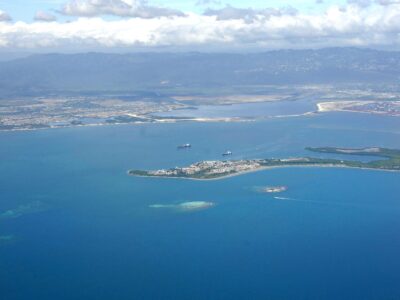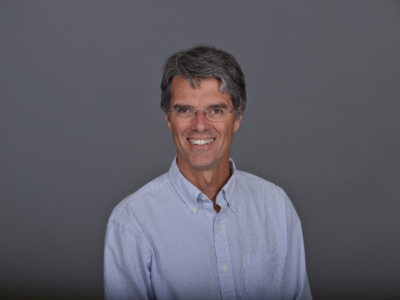From the very beginning of the conversation, it’s easy to understand how and why Paul Douglas has built and sustained a successful career both on television as a meteorologist and in the business world as an entrepreneur. He speaks with an uncommon ease and confidence that gently commands attention. Listeners instinctively lean in in anticipation for his engaging anecdotes as well as his knowledge gleaned from years of both scientific and personal experience.
“I became interested in weather at the age of 14. Our home in Pennsylvania was hit by a tropical storm. And it flooded our house and really traumatized my mother and our family. And that was kind of a wild moment that got me interested in meteorology. Why wasn’t the storm better predicted? Nobody predicted 20 inches of rain for Lancaster, Pennsylvania, where I grew up. It was really an amazing event. And I think you’ll find many meteorologists were inspired by some sort of a major storm, a tornado or flood, a hurricane, a blizzard, something (that) literally put the fear of God (in them), and that kind of gets them on the track, to better understand the science and what’s really happening.”
“The fear of God” is a statement Mr. Douglas does not use lightly when discussing the weather or his own faith, the latter of which blossomed at a young age.
“I was raised Baptist, Lutheran, Presbyterian. I like to joke that my parents were always shopping around for a better deal. But my mom was a strong Baptist and I became born again at the ripe age of 13. And never looked back.”
A graduate of Penn State with a degree in meteorology, Mr. Douglas claims over 30 years in television and radio in addition to a deep and wide range of experience as a serial entrepreneur.
He laughs, “I’m on my seventh weather technology company. And I mean, for me, the joy is starting (them) and running them isn’t nearly as much fun.”
Returning to the topic of conversation he continues, “But I’ve never stopped being a Christian. And I’ve never stopped being a scientist. And I don’t think the two are mutually exclusive. I think as I tell people, ad nauseam, you can have a respect for science, and a faith in something more, a faith in absolutes.”
Mr. Douglas goes on to describe his initial interest in the area of climate change in the late ‘90s and early ‘00s when he began noticing the weather “increasing playing out of tune,” describing extreme weather events and the greater frequency with which they appeared to be occurring.
“And for me, it was just curiosity, you know, is this a natural variation of a natural cycle? Or are we, in fact, seeing the symptoms of a warmer world?”
When asked how his faith informs his work as a scientist and vice versa, Mr. Douglas is refreshingly succinct:
“God gave us big brains. If you believe Genesis, we were made in God’s image. And he gave us big brains, the ability to think logically. The ability to improve our lives, and the good sense not to foul our nest. I don’t worship science. Science is a toolbox. God gave us a lot of tools to help us to make us better, to make us stronger. And so I try to explain my rationale that science is a toolbox. It’s not a replacement for faith…and I don’t see anything in the scriptures that leads me to believe that is a false doctrine.”
Pivoting to the larger point on stewardship of creation and how that affects a person of faith in their daily life and into the future, he again cuts straight to the heart of the matter:
“Love your neighbor as yourself. That wasn’t a suggestion, that was a commandment,” he says before explaining how a changing climate affects everyone’s neighbor, wherever they live and every person’s future as well, citing rising sea levels, higher heat indexes, and more tick-borne illness in parts of the globe just to name a few examples.
“So, absolutely, it’s a salvation issue. And as Christians, we have a responsibility to care for those around us, our neighbors, and I would argue that we have a responsibility to be good stewards (of the earth). As stewards of God’s creation, we have a moral obligation to hand things off to our kids and their kids…as well as we can, with as little damage to God’s creation. We’re tending what’s left of Eden.”
When asked in closing how he sees the future of the climate change discussion, Mr. Douglas strikes a decidedly hopeful tone:
“I’m optimistic for two reasons. (One), because younger people tend to be less skeptical. I think they acknowledge that they can have a strong faith and yet, respect for science, and a respect for people that are trying to move things in the right direction. And number two is the arc of technology, falling prices for solar, wind, biofuels, battery storage, you know, technology is quickly moving in the right direction…so I’m optimistic for those reasons.”
Equal parts a man of faith and a man of science, Paul Douglas clearly believes that the future is still bright, but it also lies in every person’s hands to shape and mold the world around them, for themselves and for one another.





 Copyright
2024
Root and Vine
Copyright
2024
Root and Vine